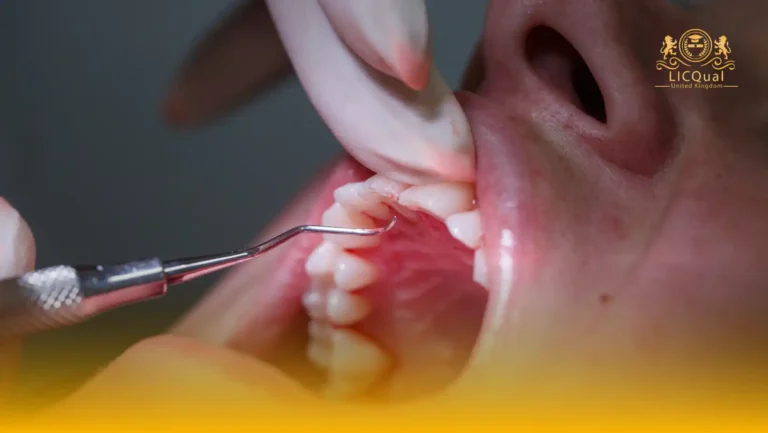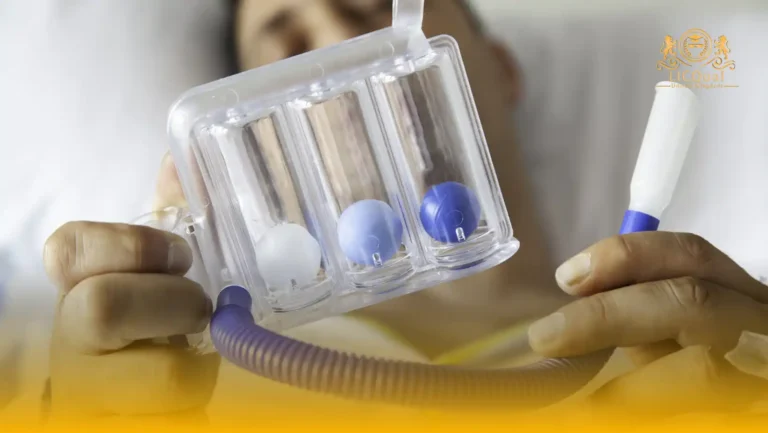The LICQual Level 7 Postgraduate Diploma in Urology (PgDU) is a specialised qualification designed for experienced healthcare professionals seeking to advance their expertise in urological medicine and surgery. This programme is not intended for fresh candidates but is aimed at learners with a medical or clinical background who wish to enhance their career prospects, broaden their knowledge, and strengthen their Continuing Professional Development (CPD).
Urology is a critical field of medicine that addresses disorders of the urinary tract and male reproductive system, including kidney diseases, urinary incontinence, prostate disorders, and urinary tract cancers. This postgraduate diploma provides learners with advanced knowledge of diagnostic procedures, surgical techniques, clinical management, and evidence-based treatment strategies. Learners will also develop skills in patient assessment, minimally invasive procedures, and multidisciplinary care, ensuring comprehensive and high-quality patient outcomes.
Centres delivering this qualification must have competent and highly qualified staff with expertise in urology, along with access to updated learning materials, clinical and laboratory facilities, and digital platforms. This ensures learners benefit from a structured, supportive, and high-quality training environment that promotes both theoretical knowledge and practical competence.
The PgDU is internationally recognised and valued for its academic rigour and relevance to modern urological practice. Learners completing this qualification will be well positioned to take on senior clinical roles, contribute to research and education, and advance healthcare services in urology, ultimately improving patient care and outcomes globally.
Course Overview
Qualification Title
LICQual Level 7 Postgraduate Diploma in Urology (PgDU)
Total Units
6
Total Credits
120
GLH
600
Qualification #
LICQ2200974
Qualification Specification
To enroll in the LICQual Level 7 Postgraduate Diploma in Urology (PgDU) , applicants must meet the following criteria:
|
Qualification# |
Unit Title |
Credits |
GLH |
|---|---|---|---|
|
LICQ2200974-1 |
Advanced Urological Anatomy and Physiology |
20 |
100 |
|
LICQ2200974-2 |
Urological Disorders and Disease Mechanisms |
20 |
100 |
|
LICQ2200974-3 |
Diagnostic Techniques in Urology |
20 |
100 |
|
LICQ2200974-4 |
Surgical and Therapeutic Interventions |
20 |
100 |
|
LICQ2200974-5 |
Clinical Urology and Patient Management |
20 |
100 |
|
LICQ2200974-6 |
Research Methods and Evidence-Based Practice in Urology |
20 |
100 |
By the end of this course, learners will be able to:
Unit 1: Advanced Urological Anatomy and Physiology
Learners will be able to:
- Critically evaluate the anatomy and physiology of the urinary tract and male reproductive system.
- Analyse the functional relationships between urological organs and their clinical significance.
- Apply advanced anatomical and physiological knowledge to patient assessment and clinical decision-making.
- Assess normal and pathological variations in urological systems relevant to diagnosis and treatment.
Unit 2: Urological Disorders and Disease Mechanisms
Learners will be able to:
- Critically analyse the pathophysiology of common and complex urological disorders.
- Evaluate the aetiology, progression, and impact of kidney, prostate, bladder, and urinary tract diseases.
- Apply evidence-based strategies for diagnosis, treatment, and long-term management.
- Assess the implications of chronic and acute urological conditions on patient outcomes.
Unit 3: Diagnostic Techniques in Urology
Learners will be able to:
- Demonstrate advanced knowledge of imaging, endoscopy, and laboratory techniques in urology.
- Critically evaluate the accuracy, advantages, and limitations of diagnostic tools.
- Apply diagnostic findings to inform clinical decision-making and patient management.
- Assess emerging technologies and their potential impact on urological diagnostics.
Unit 4: Surgical and Therapeutic Interventions
Learners will be able to:
- Critically evaluate surgical procedures and therapeutic interventions in urology.
- Analyse minimally invasive and robotic-assisted techniques for treatment of urological disorders.
- Apply evidence-based treatment plans to optimise patient care and outcomes.
- Assess risks, benefits, and ethical considerations of surgical and pharmacological interventions.
Unit 5: Clinical Urology and Patient Management
Learners will be able to:
- Apply patient-centred approaches to the management of urological conditions.
- Critically evaluate multidisciplinary care strategies for complex urological patients.
- Demonstrate professional and ethical responsibility in clinical practice.
- Assess strategies for improving patient outcomes through effective care planning and follow-up.
Unit 6: Research Methods and Evidence-Based Practice in Urology
Learners will be able to:
- Design and conduct research projects relevant to urology and clinical practice.
- Critically appraise scientific literature and apply findings to evidence-based practice.
- Apply advanced statistical and analytical methods to interpret urological research data.
- Demonstrate professional communication, academic writing, and research dissemination skills.
The LICQual Level 7 Postgraduate Diploma in Urology (PgDU) is designed for experienced healthcare professionals seeking to enhance their knowledge, clinical skills, and career prospects in urology. This programme is ideal for:
- Medical doctors and surgeons specialising in urology or related clinical disciplines.
- Urology nurses and advanced practitioners aiming to develop expertise in patient management and surgical support.
- Healthcare professionals and clinicians involved in diagnosing, treating, and managing urological conditions.
- Biomedical and clinical scientists engaged in urology research or diagnostic support for urinary tract and reproductive disorders.
- Healthcare leaders and managers responsible for urology departments, multidisciplinary teams, and patient care strategies.
- Academics and educators in urology or surgical disciplines seeking to update and expand their clinical and teaching knowledge.
- Experienced professionals committed to CPD and lifelong learning in urology, surgical practice, and advanced clinical care.
Centres offering the LICQual Level 7 Postgraduate Diploma in Urology (PgDU) must meet rigorous academic and clinical standards to ensure high-quality training and learner success. Key requirements include:
- Qualified and Experienced Faculty
- Centres must employ trainers, lecturers, and assessors with advanced qualifications in urology, surgery, or related medical disciplines.
- Staff must demonstrate substantial professional experience in urological care, diagnostics, and surgical procedures.
- Clinical and Laboratory Facilities
- Access to fully equipped urology clinics, operating theatres, and laboratory facilities for hands-on training.
- Facilities must comply with health and safety regulations and support advanced clinical skill development.
- Up-to-Date Learning Resources
- Provision of current textbooks, journals, digital resources, and research databases relevant to urology.
- Access to e-learning platforms and interactive materials to enhance learner engagement.
- Robust Quality Assurance
- Centres must maintain systems to monitor teaching quality, assessment integrity, and learner progress.
- Regular evaluation of course delivery ensures compliance with international Level 7 standards.
- Learner Support Services
- Academic guidance, mentoring, and career development support throughout the programme.
- Administrative assistance to ensure learners successfully complete their qualification.
- Commitment to CPD and Innovation
- Centres must encourage Continuing Professional Development (CPD) for both staff and learners.
- Course delivery should integrate the latest research, evidence-based practices, and innovations in urology.
- Ethical and Professional Standards
- Centres must adhere to the highest ethical, academic, and professional standards in all aspects of programme delivery.
Assessment and Verification
All units within this qualification are subject to internal assessment by the approved centre and external verification by LICQual. The qualification follows a criterion-referenced assessment approach, ensuring that learners meet all specified learning outcomes.
To achieve a ‘Pass’ in any unit, learners must provide valid, sufficient, and authentic evidence demonstrating their attainment of all learning outcomes and compliance with the prescribed assessment criteria. The Assessor is responsible for evaluating the evidence and determining whether the learner has successfully met the required standards.
Assessors must maintain a clear and comprehensive audit trail, documenting the basis for their assessment decisions to ensure transparency, consistency, and compliance with quality assurance requirements.







